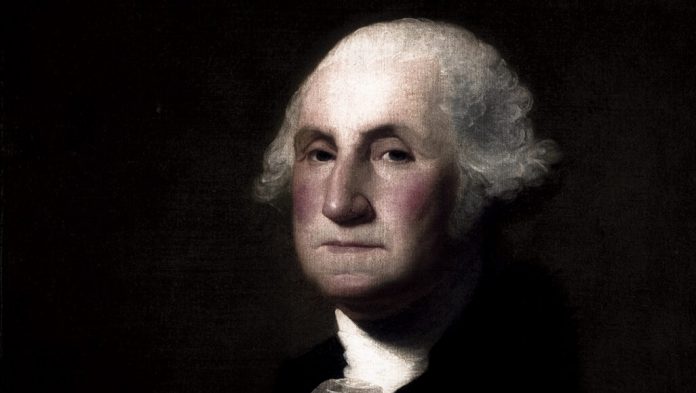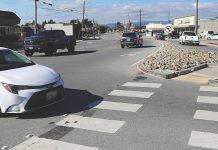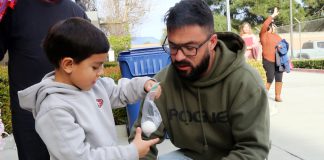By Bryan Pietsch
Schools named for historical figures, including Abraham Lincoln and George Washington, as well as current ones, like Sen. Dianne Feinstein, are set to be renamed.
Following the unrest in Charlottesville, Virginia, in 2017, which led to the killing of a protester by a white supremacist, the board moved in 2018 to establish a commission to evaluate renaming schools to “condemn any symbols of white supremacy and racism,” said Gabriela López, the board president.
The commission had decided that schools named after figures who fit the following criteria would be renamed: “engaged in the subjugation and enslavement of human beings; or who oppressed women, inhibiting societal progress; or whose actions led to genocide; or who otherwise significantly diminished the opportunities of those amongst us to the right to life, liberty, and the pursuit of happiness.”
The school board’s decision—which passed on a 6-1 vote Tuesday—to rename 44 of the district’s 121 schools was criticized by some as inappropriate amid the coronavirus pandemic and the uncertainty over when students will be able to return to classrooms.
Yukina Grady, a senior at Abraham Lincoln High School who is half-white and half-Japanese, said she was “somewhere in the middle” regarding the name change, adding that there was “a lot more that schools could and should be focusing on” in dealing with racism than simply renaming schools.
“This is a great discussion to be had,” she said, but “with everything going on with Covid, I wonder if we should be focusing on other things.”
That was echoed by the city’s mayor, London Breed, who said in a statement: “What I cannot understand is why the School Board is advancing a plan to have all these schools renamed by April, when there isn’t a plan to have our kids back in the classroom by then.”
“Our families are frustrated about a lack of a plan, and they are especially frustrated with the fact that the discussion of these plans weren’t even on the agenda for last night’s School Board meeting,” she said.
López disputed that, saying in a phone interview that reopening plans were discussed at each meeting and that the board could combat both racism and the pandemic at the same time. The mayor’s response, she said, is “not helping us get to reopening.”
There were also concerns about the cost of renaming the schools. López said the board had considered that and had estimated that it would cost $10,000 per school.
“I wonder if there’s better use for that money,” Grady said.
A vote by the school board in 2019 to hide, but not destroy, early 20th Century murals that some considered offensive to Black people and Native Americans also faced criticism.
Community members at Tuesday’s board meeting, which was held by videoconference, were similarly split on their thoughts about the decision. One person, who identified herself as Julie, said, “The heroes that we choose to name our schools after are opportunities for our children to see who’s important to us.”
The commission, whose members include teachers, students, former board members and others in the community, found that George Washington—a slaveholder for whom a San Francisco high school is named—fit its criteria for renaming.
Lincoln, who had a high school in the city named for him and also made the list, has been criticized for his response to the so-called Minnesota Uprising, in which more than 300 Native Americans were sentenced to death by a military court after being accused of attacking white settlers in 1862. Lincoln said he found a lack of evidence in most of the cases and reduced the number of condemned to 38, who were hanged in what was thought to be the largest mass execution in U.S. history.
The list of schools set to be renamed also includes lesser-known figures, such as James Denman, a former superintendent of the school district who denied Chinese students an education.
An elementary school in the city named after Feinstein, a Democrat and California’s senior senator, is also set to get a new name. Feinstein was on the list because a Confederate flag that was vandalized in front of City Hall was replaced while she was mayor of San Francisco.
The flag was “part of a design installed years before” she became mayor, and the flag was replaced “by the parks and recreation department on its own accord,” said Tom Mentzer, a spokesman for Feinstein.
Feinstein consulted city officials before ordering it to be replaced with a Union flag. Feinstein had no comment regarding the name change, he said.
López, the board’s president, said that the commission had considered the full episode regarding the flag, but that “unfortunately it met the criteria.”
A letter this month from parents of pupils at Dianne Feinstein Elementary School voiced disapproval of renaming the school, writing that Feinstein had “pioneered and blazed a trail for women’s rights and equality in government,” and pointed to legislation she had written supporting immigrants and the LGBTQ community.
Grady, the high school senior, said she was unaware of Lincoln’s actions in Minnesota. She said none of her classmates were “against the idea of addressing racist issues.”
And though “these people are just as human as we are,” she said, “we shouldn’t put them on a pedestal.”
Copyright 2021 The New York Times Company










